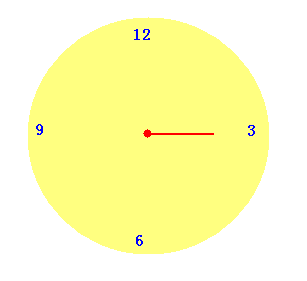
| Online Judge | Online Exercise | Online Teaching | Online Contests | Exercise Author |
|
F.A.Q Hand In Hand Online Acmers |
Best Coder beta VIP | STD Contests DIY | Web-DIY beta |
Clocks
Time Limit: 2000/1000 MS (Java/Others) Memory Limit: 32768/32768 K (Java/Others)Total Submission(s): 248 Accepted Submission(s): 0
Problem Description
There are N clocks in the room. The clock is so weird that it has only four states: 3 o'clock, 6 o'clock, 9 o'clock, 12 o'clock, represented by 1,2,3,0.(i.e, state 1 means 3 o'clock, and so on). Now giving you the initial state of N clocks, and N operations you can use to make all the clocks into the state 12 o'clock. Each operation M[i](1<=i<=N) represents by a vector size of N, M[i][j] is 0 or 1. When you use operation M[i] on the N clocks, M[i][j] = 0 means the j-th clock will not make any change, M[i][j] = 1 means the j-th clock will turn into the next state (i.e, 3 o'clock --> 6 o'clock, 6 o'clock --> 9 o'clock, 9 o'clock -->12 o'clock, 12 o'clock -->3 o'clock). You should note that you can use each operation at most 3 times.


Input
Each test case contains a single integer N (1<=N<=50), indicating the number of clocks. The next following line contains N integers (each integer is in the range [0, 3]), meaning the initial state of N clocks. The next coming N lines each line contains N integers 0 or 1, each line describes an operation. The input is terminated by a set starting with N = 0.
Output
For each test case, If you can turn all the clocks into the state 12 o'clock, output "Yes", otherwise output "No".
Sample Input
3 3 3 3 1 0 0 0 1 0 0 0 1 3 3 3 3 1 1 0 1 0 0 0 1 0 3 3 3 3 1 1 1 0 1 0 0 0 1 0
Sample Output
Yes No Yes
Source
| Home | Top |
Hangzhou Dianzi University Online Judge 3.0 Copyright © 2005-2024 HDU ACM Team. All Rights Reserved. Designer & Developer : Wang Rongtao LinLe GaoJie GanLu Total 0.000000(s) query 1, Server time : 2024-11-22 10:17:53, Gzip enabled |
Administration |